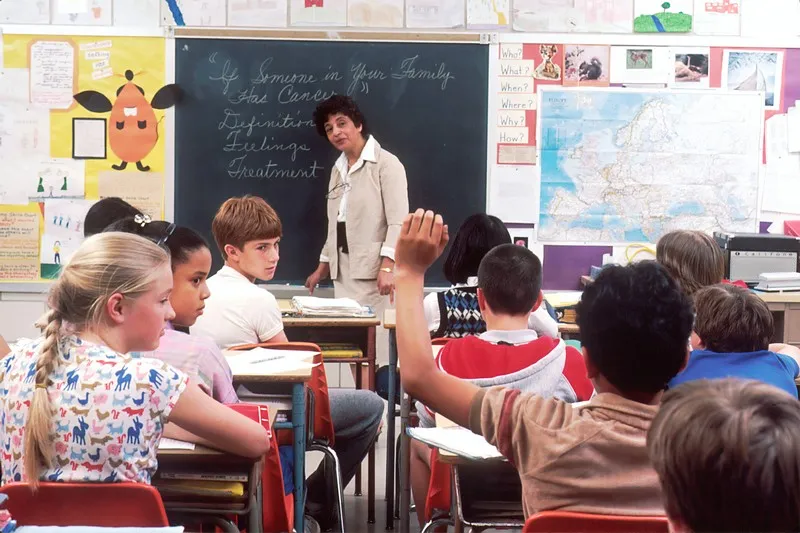In the field of sociology of education, the concept of “sets in education” refers to the grouping of students based on their abilities, skills, or academic performance. These sets, also known as tracks or streams, have been a common feature in educational systems around the world. In this article, we will outline and explain the concept of sets in education, their purposes, and their implications.
1. Definition and Purpose of Sets in Education
Sets in education involve the division of students into different groups or classes based on their academic abilities or achievements. The primary purpose of sets is to provide differentiated instruction that caters to the diverse needs of students. By grouping students with similar abilities together, educators can tailor their teaching methods and curriculum to better meet the needs of each group.
Additionally, sets in education aim to promote academic achievement by creating an environment where students can learn at a pace that suits their abilities. Students in higher sets may be challenged with more advanced material, while those in lower sets receive additional support and reinforcement of foundational concepts.
2. Types of Sets in Education
There are various types of sets that can be found in educational systems:
a) Ability-Based Sets
Ability-based sets involve grouping students according to their intellectual or cognitive abilities. This type of set is often based on standardized tests or assessments that measure students’ academic aptitude. The purpose is to ensure that students with similar abilities are taught together, allowing for targeted instruction.
b) Achievement-Based Sets
Achievement-based sets focus on grouping students based on their academic performance or achievements. This can be determined by grades, test scores, or other indicators of academic success. The goal is to provide appropriate instruction for students who are performing at a similar level, allowing for a more effective learning experience.
c) Vocational Sets
In some educational systems, sets are designed to prepare students for specific vocational or career paths. These sets may offer specialized training and coursework that align with particular industries or professions. The purpose is to equip students with the skills and knowledge necessary for their chosen career trajectory.
3. Implications of Sets in Education
Sets in education have both advantages and disadvantages, and their implications can vary depending on the context and implementation. Here are some key considerations:
a) Benefits of Sets
One of the main benefits of sets in education is the opportunity for tailored instruction. Students in sets can receive instruction that aligns with their abilities, leading to enhanced learning outcomes. Sets also allow for more efficient use of instructional time, as teachers can focus on the specific needs of each group.
Furthermore, sets can foster a sense of belonging and camaraderie among students. Being grouped with peers of similar abilities can create a supportive learning environment where students feel more comfortable and motivated to excel.
b) Challenges and Criticisms
Despite their potential benefits, sets in education have faced criticism for perpetuating inequalities. Critics argue that the process of grouping students based on abilities or achievements can lead to stigmatization and limited opportunities for those in lower sets. This can create a self-fulfilling prophecy, where students in lower sets are given fewer resources and opportunities to succeed.
Another challenge is the potential for tracking to become a rigid and inflexible system. Once students are placed in a particular set, it can be difficult for them to move to a higher set, even if their abilities improve over time. This can limit opportunities for growth and advancement.
4. Alternatives to Sets in Education
Recognizing the limitations of sets in education, alternative approaches have emerged to address the diverse needs of students:
a) Differentiated Instruction
Differentiated instruction is an approach that focuses on tailoring teaching methods and content to meet the individual needs of students within a mixed-ability classroom. This approach aims to provide personalized learning experiences while still fostering a sense of inclusivity and diversity.
b) Cooperative Learning
Cooperative learning emphasizes collaboration and teamwork among students of different abilities. By working together on group projects or activities, students can learn from and support one another, fostering a sense of community and shared responsibility for learning.
c) Individualized Learning Plans
Individualized learning plans involve creating customized learning pathways for each student based on their unique strengths, weaknesses, and interests. This approach allows for personalized instruction and allows students to progress at their own pace.
Conclusion
Sets in education have long been a part of educational systems, aiming to provide targeted instruction and support for students with similar abilities. While they offer certain benefits, sets also come with challenges and criticisms related to inequality and limited opportunities. As education continues to evolve, it is important to explore alternative approaches that promote inclusivity, diversity, and personalized learning experiences for all students.





